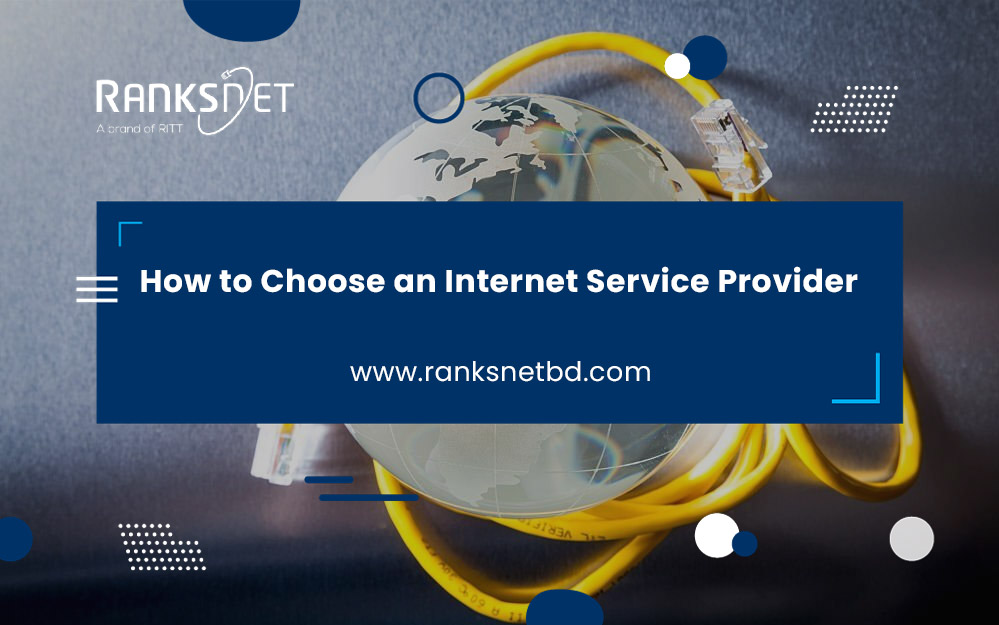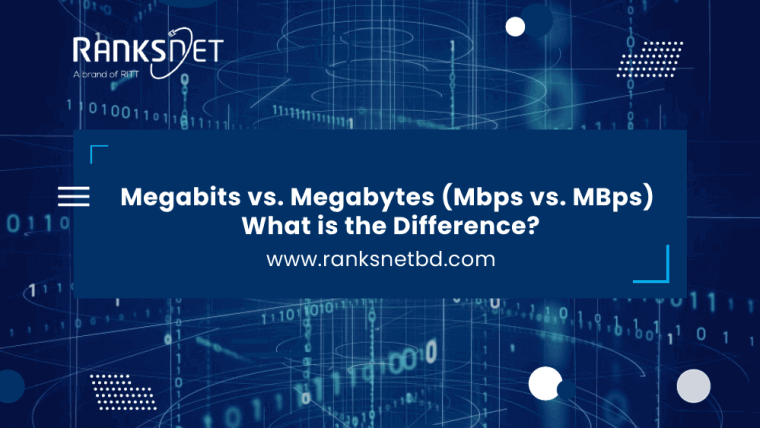Choosing the right internet service provider (ISP) is a very important choice that directly affects how you use the internet. With so many choices, it’s important to consider several things to ensure you choose an ISP that fits your wants and preferences.
This article discusses the 10 most important things to consider when picking an ISP: speed, availability, price, data caps, reliability, customer support, extra services, equipment, contract terms, and reviews.
By knowing about these things and what they mean, you can make a smart choice and have a smooth and satisfying internet experience.
Types of Internet Service
When picking an internet service provider, it’s important to consider the type of internet service that meets your needs in terms of speed, reliability, availability, and cost.
Broadband
Broadband is a term for high-speed internet connections that send and receive data quickly. It is the most common type of internet service available today. There are many ways to get broadband through various technologies, such as DSL, cable, fiber optic, satellite, and fixed wifi.
Cable
Coaxial cables are used to send data for both cable TV and cable internet. It has faster speeds, is reliable, and always performs well. In cities and suburbs, cable Internet is widely available. The number of people using the same local network may impact the speed and functionality of cable internet.
Fiber Optic
Thin strands of glass or plastic fibers send data as bursts of light in fiber optic internet. Compared to other ways to connect to the internet, it is the fastest and most reliable. Distance doesn’t affect fiber optic connections, so the speed stays the same no matter where the person is.
10 Factors to consider when choosing Internet service provider
1. Internet Speed
Internet speed is how fast data can be sent and received over a link to the internet. It is usually measured by how fast you can receive and how fast you can upload.
The download speed is how fast data comes from the Internet to your device, and the upload speed is how fast data leaves your device and goes to the Internet.
Think about what you do online most of the time to figure out how fast an internet connection you need. Different speeds are needed for different tasks. Here are some overall guidelines:
Basic web browsing and email: A s–5 Mbps speed is generally enough for basic web browsing and sending emails.
Streaming video in standard definition (SD): A speed of at least 3–5 Mbps is suggested for smooth streaming without buffering.
Streaming video in high definition (HD): Aim for speeds between 5 and 10 Mbps to watch HD video without interruptions.
Video streaming in 4K or UHD (ultra-high definition): For smooth 4K viewing, you should have at least 25 Mbps speeds.
Read our article to learn fiver vs cable internet
2. Availability and Coverage
When picking an Internet service provider (ISP), one of the first things to consider is whether or not they serve your area. Not every ISP has coverage everywhere, so checking if they do is important. You can determine if the ISP serves your area by using your location or zip code.
Once you know which ISPs are in your area, it’s important to look at how well they cover your area and how reliable they are. A good ISP should have a strong network system and enough bandwidth to meet the needs of people in your area.
Discover what technology the ISP uses, like fiber optic, cable, DSL, satellite, or fixed wireless. Find out how often the ISP’s service has been down. Look at their website to see if there are any reports or data there. Ask people in your area who already use the ISP what they think about it.
3. Pricing and Plans
When picking an internet service provider (ISP), consider their prices and plans carefully. For instance, there is a set fee that you have to pay every month for a certain internet plan.
Also, ISPs often give new users lower rates, like the first six months or a year, for a certain time. When considering pricing structures and contract terms, consider your budget, how much internet you plan to use, and how long you will be in the location.
Internet service providers (ISPs) often bundle internet packages with other benefits like cable TV, phone service, or streaming subscriptions. Bundling can make things easier and save you money, especially if you plan to use more than one service from the same company.
But check each package service’s terms and prices carefully to ensure it fits your needs and doesn’t include features you don’t need.
Read more to know internet costs in Bangladesh
4. Data Caps and Usage Policies
Data caps, also called data allowances or usage limits, are the most data you can use in a given billing period without being charged extra or slowing your speed down. When you exceed your data limit, your ISP may slow down your internet speed for the rest of the payment cycle or throttle it.
Consider what you do online and how many devices in your home are linked to the internet to determine how much data you need. Here are some estimates
- On average, a few megabytes (MB) of data are used per hour for web browsing and email.
- The standard definition is 1 to 3 GB per hour for watching videos.
- About 3GB to 7GB per hour for high-definition video viewing.
5. Reliability and Uptime
When picking an Internet service provider (ISP), it’s important to think about how reliable and available the ISP is. Reliability is how stable and consistent the internet connection is, while uptime is how often the link works without interruptions or outages.
With a reliable and always-on internet connection, you can always use online services, do real-time things like video calls or online games, and keep your work, entertainment, and communication needs from being interrupted.
Check to see if the ISP has SLAs that ensure a certain level of reliability and uptime. As a result, this will give you a good idea of how reliable the ISP is. Also, check out how good and stable the ISP’s network technology is.
6. Customer Support and Technical Assistance
Customer service is a very important part of a good internet service experience. Having solid and quick customer service can make a big difference when you have technical problems or questions about your internet connection.
Customer service that works well can help you solve problems, give you advice, and answer any questions you may have. Phone support, online chat, email support, and self-service tools are all common ways to help customers.
Moreover, consider how long the ISP takes to answer and help customers on average. A fast response time shows that the ISP cares about customer happiness and makes fixing problems quickly a top priority.
Check if the ISP gives customer service 24 hours a day, 7 days a week. This is especially important if you use the internet for important applications or have needs outside business hours.
7. Additional Services and Features
Some offer email accounts and web hosting as part of their deals. Having a personalized email address with the name of your Internet service provider can help you look more professional online.
Web hosting services let you build and run your website, which makes it easier to get online or start a personal or small business website.
Consider whether the ISP includes Wi-Fi routers and other necessary tools as part of their service or if you must buy or rent them separately. Check the quality, range, and capabilities of the equipment you are given to ensure it meets your needs.
ISPs may work with or offer streaming and entertainment platforms, which give users access to a wide range of films, TV shows, and songs. Some ISPs also have special features for streaming, like putting streaming traffic at the top of the list or giving famous streaming services faster connections.
8. Equipment and Installation
When choosing an internet service provider (ISP), it’s important to consider the tools they will give you to connect to the internet and keep it working.
When deciding on an ISP, you should consider how good and compatible their equipment is. You should get a good modem and router for a stable and reliable internet link. Also, ensure the equipment works with your gadgets and your network is set up.
Think about whether the ISP rents or sells customers the tools. Some ISPs include the cost of renting equipment in their regular fees, while others let you buy the equipment instead. Check the ISP’s customer help channels and how quickly they answer questions or concerns about equipment.
9. Contract Terms and Cancellation Policies
The length of the deal is one of the most important things to consider. ISPs usually offer contracts with different lengths, like month-to-month, yearly, and multi-year terms. Some ISPs offer service guarantees or terms about how well they will do in their contracts.
Most of the time, these guarantees spell out how reliable and well the service the ISP promises to give will work. They could be things like percentages of uptime, minimum connection speeds, or response times for tech help.
Most contracts say they will be automatically renewed at the end of the first term. Note if you need to give notice or if you can change the terms when the contract is up for renewal.
10. Reviews and Recommendations
When picking an Internet service provider (ISP), it’s a good idea to look at reviews and suggestions from people who have already used that ISP. Reviews and recommendations tell you about the level of service, how happy customers are, and how the ISP is overall.
Visit online review sites that focus on ISPs and are known to be reliable. These sites collect customer reviews and ratings, which gives you a general idea of how well the ISP works.
Ask family, friends, or coworkers who have used the ISPs you are thinking about if they can suggest one. Engage Internet service provider-related online communities, social media groups, or boards.
Conclusion
Remember that there is no right way to choose an ISP. The best choice for you will depend on where you live, how you use the internet, how much money you have, and your tastes. Take the time to think about your choices and rank the things that are most important to you.



